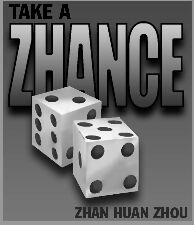
Spring 2000
Fall 1999
Winter 1999
Fall 1998
Spring 1998
Fall 1997
©2001 Zhan Huan Zhou
Updated Mar-12-2001
Please email me for comments, corrections, or suggestions.
What You Know, Part V
©2001 Zhan Huan Zhou, Winter 2001, Issue 5
At this point, I have discussed how each of the four postulates relate to each year in university. I think it would be prudent to recount the four postulates to refresh your memory before I continue with this issue's discussion. Here they are again:
- In first year, "You don't know that you don't know"
- In second year, "You know that you don't know"
- In third year, "You don't know that you know"
- And finally, in fourth year, "You know that you know"
In Part II, I briefly alluded that we need to define a sphere to which the postulates apply. I concluded that the minimum size was at least academic knowledge gained in lectures, labs, and projects. I posit that the four postulates are far more general than simply material learned in university. It extends to anyone learning anything at anytime. Even people who are supposed to 'know,' such as professors, must pass through this learning curve. For example, to paraphrase one of my professors, he said, "it's amazing how little you know" when referring to his lack of knowledge pertaining to new technologies. On the other extreme end, even my brother in high school had a similar inclination. His words to me were "I realized how much I don't know." The surprising thing to me is that both of these quotes were uttered this term, about the time I discussed the second postulate: "You know that you don't know." Both my professor and brother clearly demonstrated their understanding of postulate two even though neither of them are in second year. My professor is clearly well beyond that stage and my brother has yet to even reach first year. These two facts lead to a very interesting paradox presented within the four postulates. The second postulate seems to be very heavily weighted among the four. In fact, one could argue that the second postulate is all that is required. The remainder of this article explores this hypothesis further.
The second postulate is one that even Rene Descartes would believe. This is quite incredible since he wouldn't even believe that he his own body existed. Why does he agree with "You know that you don't know?" This postulate is the most general of the four. It asserts that the only certainty is that things are uncertain, which is precisely what Descartes was arguing in his Meditations. Furthermore, the first postulate is a consequence of the second postulate, which is proved next.
Proof that the first postulate arises from the second postulate:
Since we are not omniscient beings, our initial state is unknowing.
Since the second postulate states that "You know that you don't know,"
this implies that there was a time that "You don't know that you don't
know."
QED
Note that the reverse argument does not hold. A state of not knowing does not imply a state of knowing in the future, which is required to derive the second postulate from the first. Another objection to the four postulates is that both the third and fourth postulates are simply invalid. They both assert certain knowledge in the realm where things are uncertain. One can never really know any subject well enough to know it completely. This means that all progress in the Path to Learning must be stalled at the second postulate. This assertion has even backed in science through the ages. The physics proposed by Aristotle was superseded by Newton, and Newton by Einstein. Eventually, even Einstein's theories will be replaced. The progression of science is defined by replacing theories that are wrong with theories that are more subtly wrong. We can never understand or know if it is fully correct. This is true of all knowledge we acquire. We can only know that we don't know.
So, in this issue, I've presented two drastically view of the four postulates. In the first view, I've suggested that they are more general than simply the four years of university and that it applies to learning at all stages. However, I've also presented a view that attacks the validity of the four postulates, suggesting that the third and postulates are simply false. The second postulate is the strongest of the four and is perhaps the only one needed to define the Path of Learning. This concludes my discussion of what you know.
Next issue it will be the last ever instalment of Take A Zhance. Don't miss your zhance to read it.